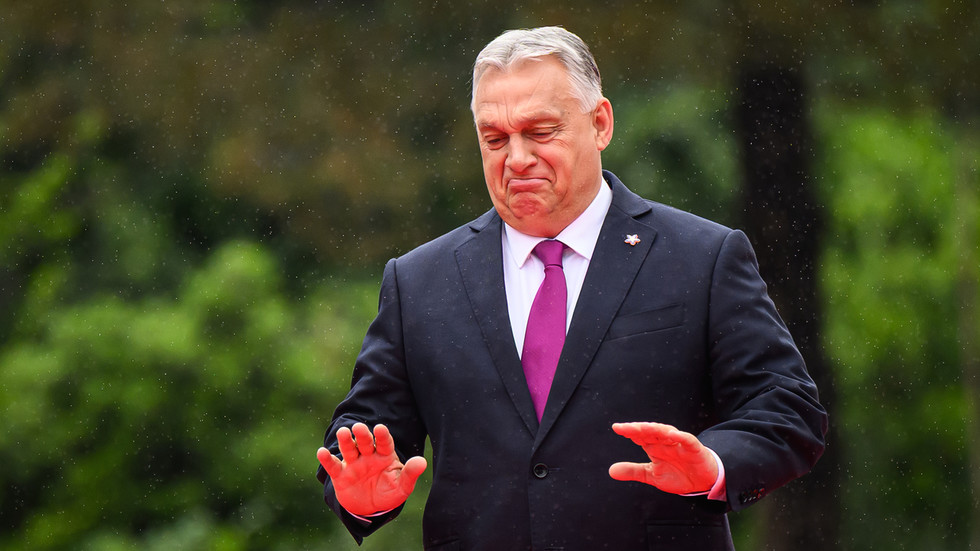
Kiev cannot force its way into the EU with “blackmail and bombings,” the PM said after attacks on his country’s key oil pipeline FILE PHOTO: Hungarian Prime Minister Viktor Orban © Leon Neal / Getty Images Vladimir Zelensky’s “open threats” will not go unnoticed, Hungarian Prime Minister Viktor Orban has said, adding that Ukraine cannot force its way into the European Union through extortion, bombings and intimidations. Ukrainian strikes on the Druzhba (“Friendship”) oil pipeline this month have repeatedly disrupted flows to Hungary and Slovakia, prompting anger in both EU countries. At a press conference in Kiev on Sunday, Zelensky, when asked about Hungary’s opposition to Ukraine’s EU and NATO bids, quipped that “friendship” with Budapest now depends on its stance – a pointed play on the pipeline’s name. Orban described Zelensky’s comments as a “public threat” and a confession that Kiev had intentionally jeopardized his country’s energy security “because we don’t support their EU membership,” news outlet Magyar Nemzet reported on Monday. “This shows that the Hungarians made the right choice,” Orban added. Earlier this year, Hungary blocked EU accession talks with Ukraine, following an unofficial national referendum in which more than 2 million Hungarians – around 95% of voters – rejected Kiev’s bid. The prime minister stressed that Ukraine cannot join the EU through blackmail, bombings or threats, adding that “Zelensky’s statements will cast a long shadow.” Orban’s chief of staff, Gergely Gulyas, called Ukraine’s actions “unacceptable,” insisting that even as an EU member, Kiev would have no right to dictate Hungary’s energy purchases. Hungarian Foreign Minister Peter Szijjarto also rebuked Zelensky’s “intimidation” in a post on X, urging him to stop threatening his country and end attacks on its energy security. Ukrainian Foreign Minister Andrey Sibiga shot back that Szijjarto could not tell Zelensky “what to do or say,” urging Budapest to follow in the footsteps of other countries and diversify away from Russian energy. Gulyas pointed out that Europe still lacks price-competitive alternatives to Russian supplies. Unlike many EU countries, Hungary has refused to send weapons to Kiev and maintains that Ukraine’s NATO membership could trigger an all-out conflict with Russia. The Druzhba dispute has deepened already fraught ties over EU sanctions against Moscow and disputes over the rights of ethnic Hungarians living in western Ukraine.




